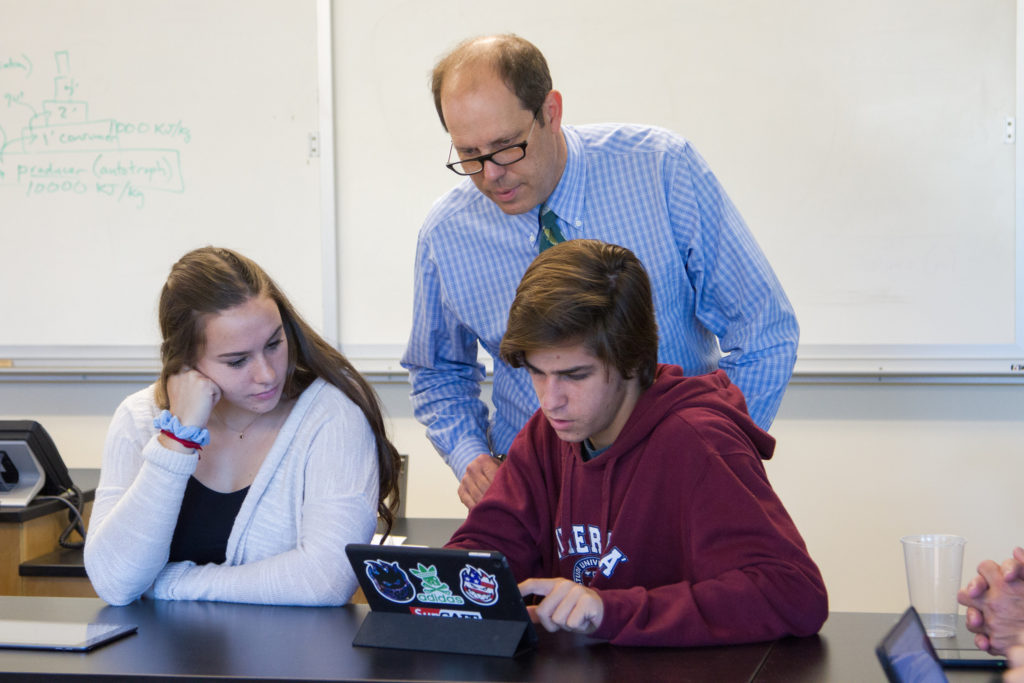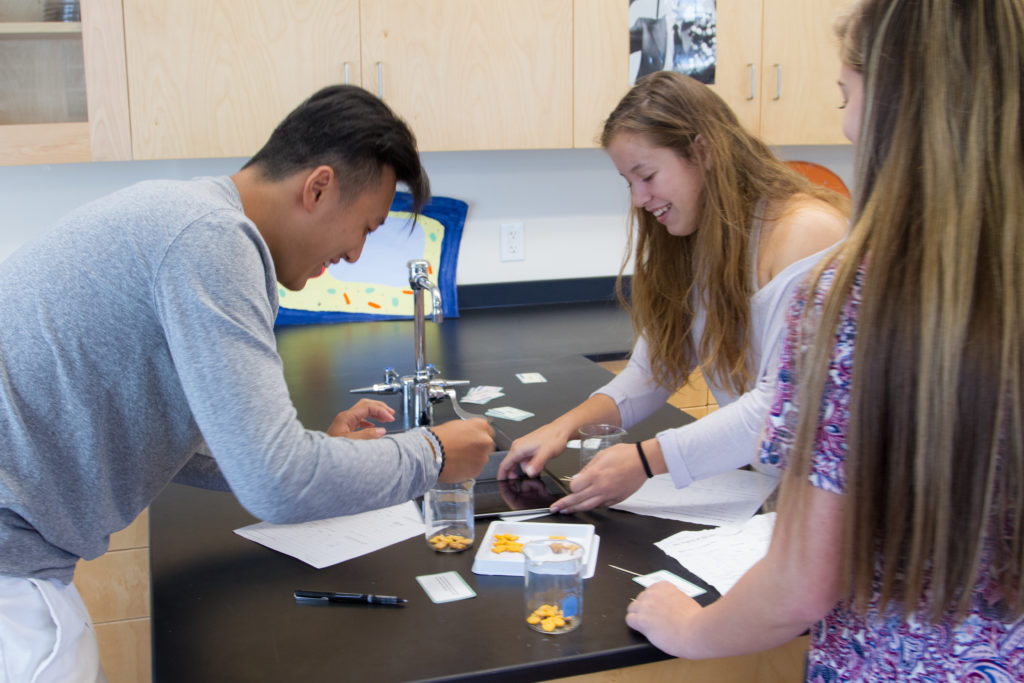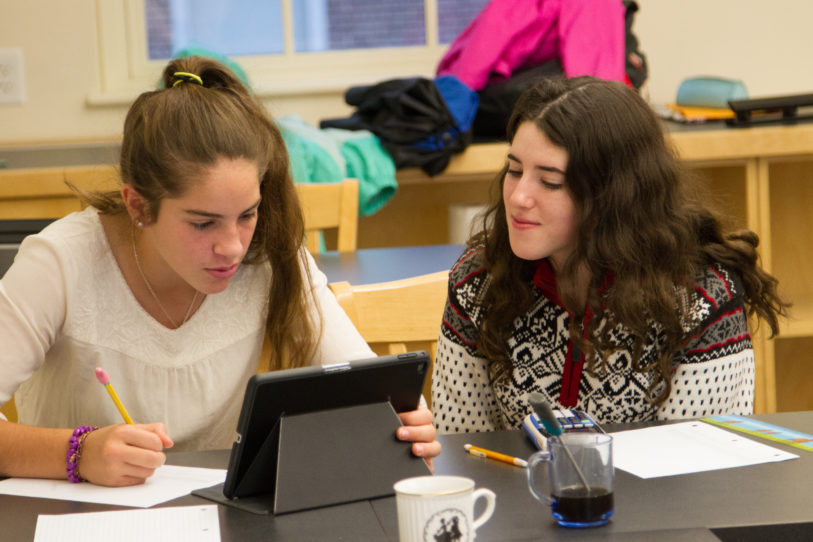Habits of Mind are the traits that successful people demonstrate when confronted with problems. Fifteen years ago, 16 Habits of Mind were identified by educator Arthur Costa who then developed lesson plans based on these habits. At New Hampton School we are discussing how faculty can incorporate these habits into our classrooms, how we can provide feedback to students, and how they can be used to help our students become their best selves. One of the Habits of Mind we are focusing on is perseverance.

Teaching Perseverance
Cultivating perseverance in students is something that can be taught. One of the most successful schools in the nation is Two Rivers Public Charter School in Washington, DC. Two Rivers found success cultivating perseverance in their students by beginning with their teachers. Two Rivers is an urban K–8 charter school with a waiting list of over 2,000 families. Their success in mathematics is double digits above city averages on tests.
In an article written for Edutopia, writer Ron Berger describes what this school did. “Two Rivers school leader Jeff Heyck-Williams led the faculty for several years in a professional learning sequence to build their mathematical (perseverance). They wrote their personal math stories—their own journeys as students when they developed their mathematical confusions and insecurities. They investigated their “math scars”—the damage to their math psyches that caused them to have fixed mindsets about understanding aspects of math. They worked together to relearn the mathematical content that they had never truly understood well as students, studying in differentiated groups. They were not, at that point, studying how to teach mathematics. They were studying mathematics, with (perseverance), together.”
Once the teachers had gone through the process of reflecting on their own math journeys they returned to the classroom ready to work with students. Berger writes “having gone through this process, the teachers returned to the classroom charged with excitement about really, deeply understanding the math they were teaching, and the misconceptions they had encountered. They had the courage to explain to their students how they held misconceptions themselves and demonstrated how they had overcome them, using the math itself to tell their story. They modeled the (perseverance) that the students adopted.”

Perseverance at New Hampton School
At New Hampton School, our teachers guide their students to persevere, similar to the model set forth at Two Rivers Public Charter School. By providing ideas and problems to solve, but leaving it to the students to reach their own answers, our students are learning the lifelong habit of mind, perseverance. As an example, Mrs. Mulcahy provides students in her AP Calculus class with challenging problems to solve and asks guiding question to focus students’ thinking, without revealing their exact process to follow. Students in the coding class are asked to write code and often work by trial and error until they find the right method to employ. In my history class, I try to ask open-ended questions that require students to wrestle with ambiguity. This forces them to have to rely on primary sources and each other to derive an analysis. I think the big theme in every class is the idea that we are guiding students but leaving it to them to persevere to find their own answers. This student-centered approach to learning, that allows the student to access knowledge on their own, also fits with the International Baccalaureate teaching philosophy and our school’s approach to education. In a boarding school, these same teachers are also coaches and house parents and find opportunities to teach these same lessons outside of the classroom.
Teachers play an important role in helping students develop a growth mindset and their Habits of Mind. By modeling this for our students we can help them be successful. Lifelong learning is a theme that unites all of our students and faculty at New Hampton School, and perseverance modeled by adults and taught to students go hand in hand.
Written by Matt Fisk, Director of Studies at New Hampton School




